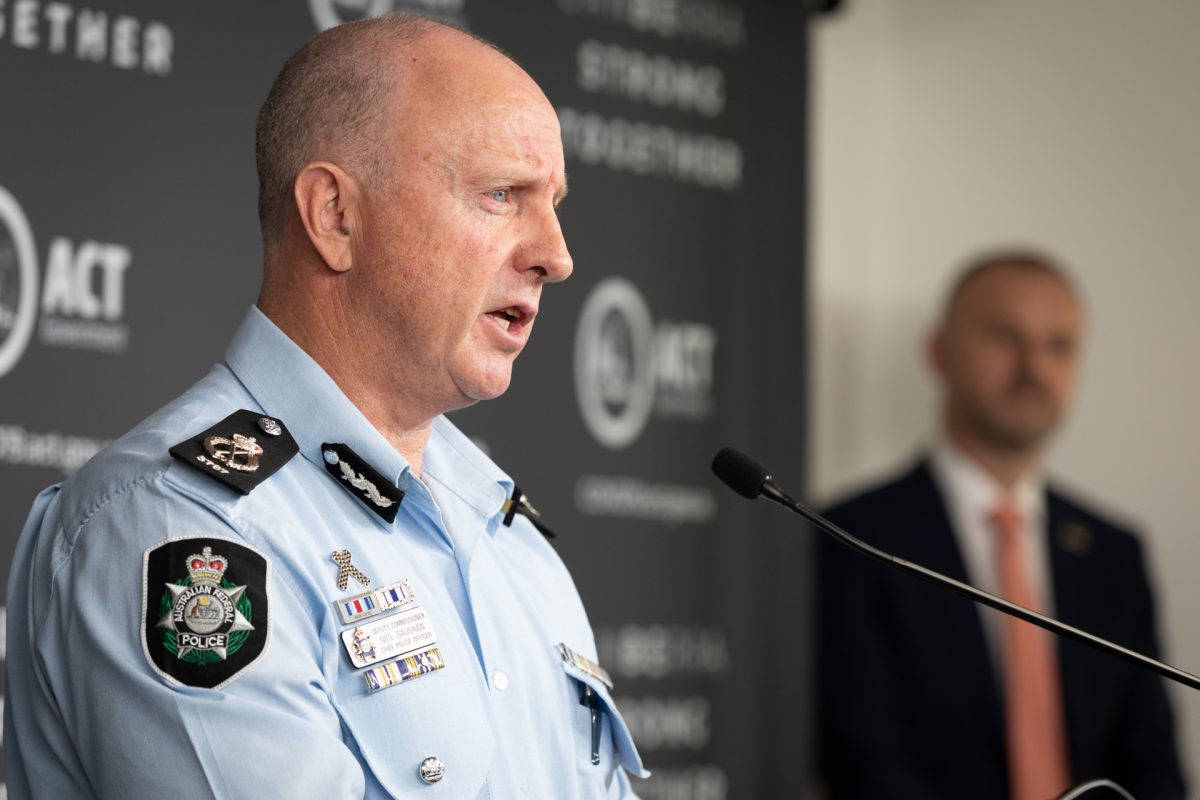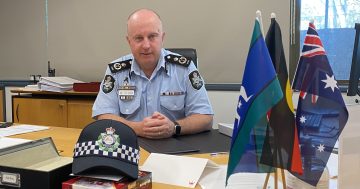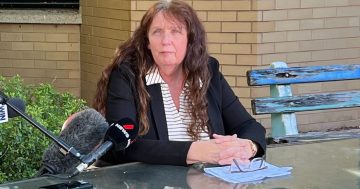
Deputy Commissioner Neil Gaughan: “These are extremely rare events in Canberra. This is an extremely safe city.” Photo: Michelle Kroll.
The two young women who were stabbed in an incident on the Australian National University (ANU) campus have left hospital after being in intensive care, ACT Chief Police Officer Neil Gaughan confirmed on Wednesday (4 October).
Deputy Commissioner Gaughan told ABC Radio, “both [are] doing quite well, which is great”.
Bachelor of Arts student Ilysha Perry was left seriously injured, and her mother, Fiona Coffrey, told media that while she will hopefully recover, “she’ll never be the same”.
At the time, Ms Coffrey said she didn’t know whether her daughter would make it.
“We didn’t know if she was going to survive or not,” she said.
“I felt pretty lucky that she had hung on that long to see me. I felt lucky that she was still with us.”
Ms Perry was one of two women stabbed on the ANU campus on 18 September.
ACT Policing and ACT Ambulance Services were called to the campus at 2:45 pm following reports of the incident.
Police say a 24-year-old man initially engaged a male student by hitting him on the head with a frying pan. The student subsequently ran away from the scene.
The 24-year-old then allegedly stabbed Ilysha and another 20-year-old female student.
The man then allegedly approached a second male student and punched him in the face.
The suspect, Alex Ophel, has been charged with two counts of attempted murder, two counts of assault and one count of possessing an object to be used to kill.
Deputy Commissioner Gaughan gave more detail about the events that allegedly took place on 18 September.
“We were notified of the incident at ANU via a triple-zero call; prior to that, we had received a call from the facility saying Mr Ophel had not returned from a walk, and then we received further information he was taken into custody by law enforcement officers and is now before the courts,” he said.
A registered nurse had reportedly called police via triple-zero 10 minutes after the first call, and police had told the nurse that a missing patient was “not an emergency” and that they should instead call the police assistance line on 131 444.
Deputy Commissioner Gaughan defended this decision and said the call was not an emergency based on “the circumstances that were explained to us at the time”.
“Unfortunately, we see people get out of those type of institutions quite regularly, and missing persons are quite a common occurrence in the ACT.
“If there’s a threat of violence or something like that at the time, then clearly it’s appropriate to ring triple-zero, and in those circumstances it wasn’t.”
“In any event, Mr Ophel was already on the grounds of the ANU by the time the call was made.”
Asked whether tighter surveillance or restrictions on patients on day leave are needed, Deputy Commissioner Gaughan said discussions need to take place, but a “middle ground” is required.
“I think what we need to do is have a conversation on not just the circumstances of this particular case but more broadly,” he said.
“Obviously, with people that have mental health issues, what we’re trying to do is get them back into the community so they can actually contribute to the community.
“We shouldn’t lock them away and throw away the key. We need to treat it as a health issue, but by the same token, we need to ensure public safety is looked after.”
“At the moment, we probably place too much focus on the privacy of the individual patient … Does the individual privacy outweigh the safety of the whole community? I would argue that it probably doesn’t.”
“These are extremely rare events in Canberra. This is an extremely safe city,” he said.


















